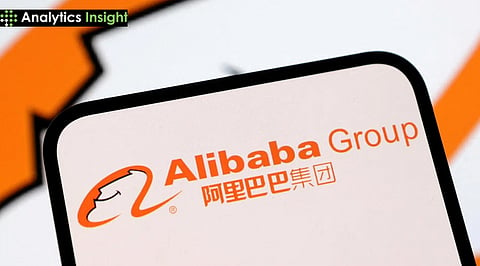

Alibaba Group Holding’s Qwen app has passed 10 million downloads within a week of its public beta relaunch. This milestone lifted the company’s Hong Kong shares by more than 5% on Monday. Alibaba disclosed the figure in a WeChat post after rebranding Tongyi apps with Qwen. The surge points to strong demand for a domestic AI chatbot in China, where OpenAI’s ChatGPT is unavailable.
Alibaba rebuilt Qwen as a multipurpose consumer AI assistant powered by its open-source family of Qwen models on Alibaba Cloud. The app offers text and image generation, research tools, and presentation creation. According to Reuters, the relaunch marks Alibaba’s biggest push into the consumer AI market after the previous versions lagged rivals in active users.
Before the redesign, Tongyi drew fewer monthly active users than ByteDance’s Doubao and models from DeepSeek. Alibaba has tried to close the gap by refreshing its interface and highlighting daily tasks for students, office workers, and shoppers. The company plans an international release once it completes beta testing in China.
The download pace places Qwen among the fastest-growing standalone AI apps in China this year. Bloomberg noted that AI chatbots have set new adoption records since ChatGPT’s global debut. Alibaba’s data comes as Chinese users shift toward local services that can run on domestic platforms and meet local content rules.
Chief Executive Eddie Wu has framed Alibaba as an “AI-first” company, and Qwen sits at the center of that plan. The firm said it will add agentic features over the coming months. These tools aim to take actions for users, including search, booking, and purchase tasks across Alibaba properties.
Alibaba also outlined a broad integration roadmap. It intends to connect Qwen with digital maps, food delivery, travel booking, office tools, e-commerce, education, and health guidance. The company wants Qwen to become a single entry point to its lifestyle ecosystem, with Taobao as a key test case for AI shopping support.
Qwen’s early traction arrived as competitors race for Chinese consumers. Ant Group, Alibaba’s fintech affiliate, launched its multimodal assistant LingGuang last week. Ant said LingGuang topped one million downloads in four days and exceeded two million within six days, reflecting fast uptake for AI tools that help users build apps from plain-language prompts.
China’s AI field has seen sharp price cuts and rapid model updates as firms chase scale. Qwen’s early numbers suggest Alibaba can compete for attention, but the company still needs repeat usage and steady revenue to justify heavy model spending.
Investors now look to Alibaba’s quarterly results, due Tuesday, for details on spending and monetization. Analysts will watch whether Qwen lifts consumer engagement and supports valuation against peers like ChatGPT and Gemini. Alibaba must balance user growth with cloud and model costs as it moves toward an overseas rollout in 2026 and beyond, according to company statements.
